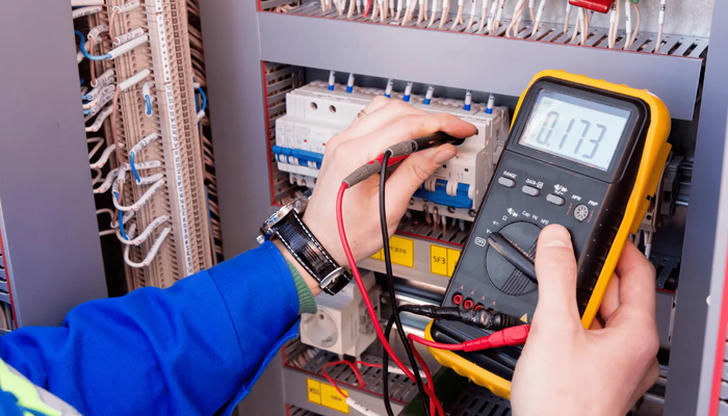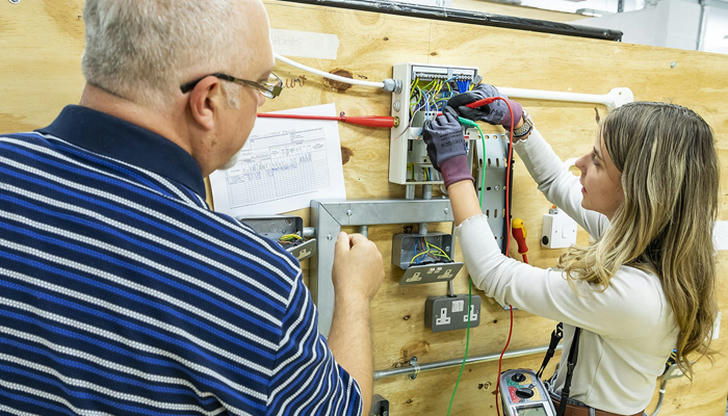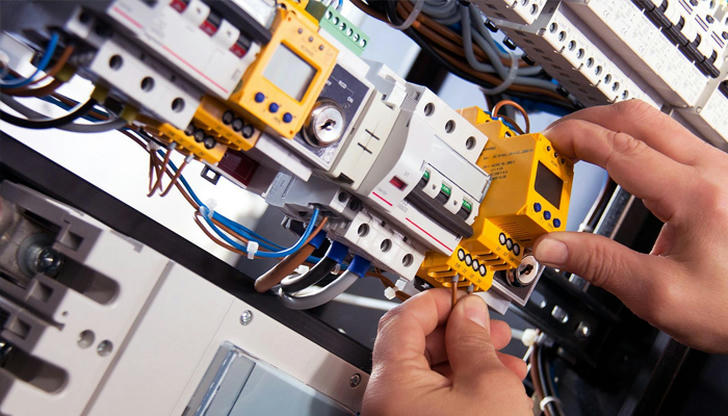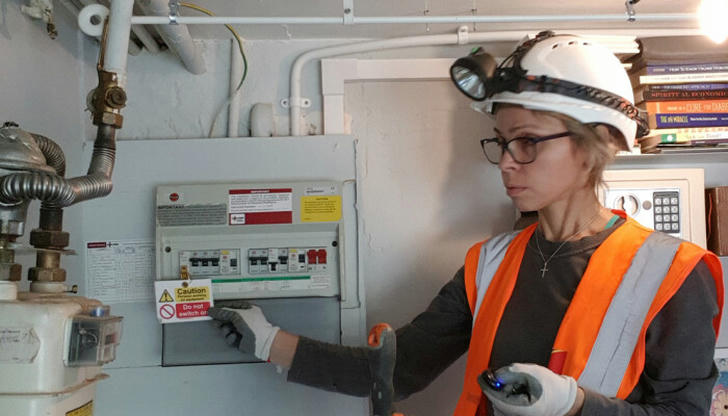Master Electrician Skills for a Rewarding Career

In the modern world, electricity is the backbone of our daily lives. From lighting up our homes to powering essential appliances, the role of an electrician is indispensable. Whether you're a homeowner, a business owner, or simply someone who wants to gain a valuable skill, becoming a qualified electrician opens doors to a wide range of opportunities. However, the journey to mastering this trade is not just about flipping switches or wiring outlets—it's about understanding the complexities of electrical systems, adhering to safety protocols, and learning the latest technologies in the field. This article will guide you through the ins and outs of electrician training, highlighting why it's a critical investment for anyone looking to secure a stable and lucrative career.
Why Electrician Training?
Electrician training is more than just a skill—it's a gateway to a future filled with job security, high earning potential, and personal fulfillment. With the increasing demand for skilled electricians in both residential and commercial sectors, now is the perfect time to invest in this trade. Here are some compelling reasons to pursue electrician training:
- High Demand: As technology advances, the need for reliable electrical systems grows. From installing solar panels to maintaining complex industrial machinery, electricians are in high demand.
- Lucrative Salary: Electricians are among the highest-paid tradespeople, with opportunities for overtime and specialized projects that can significantly boost your income.
- Job Security: Electrical work is a necessity, not a luxury. This means that electricians are less likely to be affected by economic downturns compared to other professions.
- Personal Satisfaction: There's nothing more rewarding than completing a project that powers a home, business, or community. Electricians play a vital role in keeping the world running smoothly.

Understanding Electrician Training
Electrician training is designed to equip you with the knowledge and skills needed to work safely and effectively in the electrical field. The training covers a wide range of topics, from basic electrical theory to advanced installation and repair techniques.
Types of Electrician Training
- Apprentice Programs: These programs are ideal for beginners. You'll work under the supervision of licensed electricians while learning the ropes. Apprenticeships typically last 4-5 years and combine hands-on training with classroom education.
- Vocational Schools: Vocational schools offer shorter, intensive programs that focus on practical skills. These programs are perfect for those who want to enter the workforce quickly.
- Online Courses: For those with busy schedules, online training is a flexible option. However, it's important to supplement online learning with hands-on practice to master the trade.

Key Components of Electrician Training
To become a proficient electrician, you'll need to master several key areas. Here's a breakdown of what you can expect:
Electrical Theory
- Understanding the basics of electricity, circuits, and wiring is fundamental. You'll learn about voltage, current, resistance, and how these elements interact in an electrical system.
- Safety protocols are emphasized to ensure you can work in hazardous environments without risking injury.
Hands-On Training
- Practical experience is crucial. You'll learn how to install and repair electrical systems, work with tools, and troubleshoot common issues.
- Training often includes working with blueprints, reading schematics, and understanding local building codes.
Specialized Skills
- Advanced training may include working with solar panels, smart home systems, and industrial machinery.
- Learning how to handle emergencies, such as electrical fires or power outages, is also a critical part of the curriculum.

The Benefits of Choosing the Right Training Program
Selecting the right electrician training program is essential for your success in this field. A reputable program will provide you with the skills, certifications, and networking opportunities needed to thrive.
Certifications and Licenses
- Upon completing your training, you'll need to pass state-specific licensing exams to become a licensed electrician.
- Certifications, such as those from the National Electrical Contractors Association (NECA), can further enhance your credibility and earning potential.
Networking Opportunities
- A good training program will connect you with industry professionals, contractors, and potential employers.
- Building relationships in the field can lead to job referrals, partnerships, and career growth opportunities.
Job Placement Support
- Many training programs offer job placement assistance, helping you secure your first position in the industry.
- With the right training and connections, you can start your career with confidence and stability.

What to Expect in the Training Process
The electrician training process is rigorous but rewarding. Here's a step-by-step guide to what you can expect:
Initial Assessment
- Most programs begin with an assessment to determine your current skill level and areas for improvement.
- This ensures that the training is tailored to your specific needs.
Classroom Instruction
- You'll spend time in the classroom learning electrical theory, safety standards, and local regulations.
- Topics such as the National Electrical Code (NEC) and Occupational Safety and Health Administration (OSHA) guidelines will be covered in detail.
Hands-On Practice
- The majority of your training will involve hands-on work. You'll practice installing wiring, troubleshooting circuits, and working with electrical tools.
- Simulated job scenarios will prepare you for real-world challenges.
Apprenticeship
- Many programs include an apprenticeship where you'll work alongside experienced electricians to gain practical experience.
- This is your chance to learn from the pros and build your portfolio.
Final Exam and Certification
- After completing the training, you'll take a final exam to demonstrate your knowledge and skills.
- Passing the exam will earn you a certification, which is required to work as a licensed electrician.

The Future of Electrician Training
The field of electrical work is constantly evolving, and so is the training required to stay competitive. With the rise of renewable energy sources, such as solar and wind power, electricians who specialize in these areas are in high demand.
Emerging Technologies
- Smart Home Systems: Electricians are now expected to install and maintain devices like Alexa, Google Nest, and Smart Thermostats.
- Electric Vehicles (EVs): As more people switch to electric cars, the demand for electricians who can install charging stations and understand EV infrastructure is growing rapidly.
- Energy Efficiency: Learning how to install energy-efficient systems, such as LED lighting and solar panels, can set you apart in the industry.
Continuous Learning
- The electrical field requires lifelong learning. Staying updated on the latest technologies and safety standards is crucial for long-term success.
- Many training programs offer advanced courses and certifications to help you stay ahead of the curve.

Conclusion
Electrician training is a transformative experience that can lead to a fulfilling and lucrative career. With the right program, you'll gain the skills, knowledge, and confidence needed to succeed in this dynamic field.
Final Thoughts
- Don't underestimate the importance of quality training. A reputable program will not only teach you the trade but also prepare you for the challenges of the real world.
- Start your journey today and unlock the potential for a career that is both rewarding and secure.
